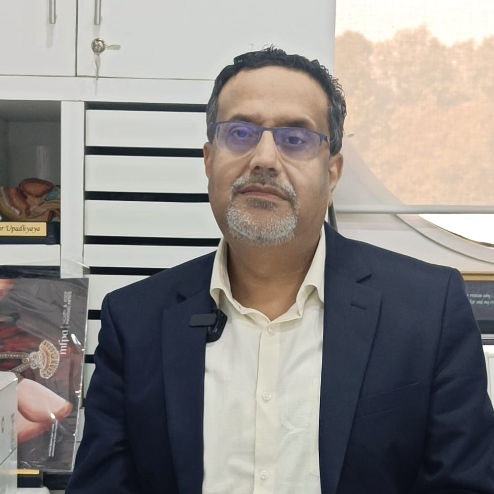Antiphospholipid Syndrome: Overview
Know about Antiphospholipid Syndrome (APS), an autoimmune disorder that increases the risk of blood clots. Explore its symptoms, causes, diagnosis, and treatment options for better management and care.


Introduction
Antiphospholipid Syndrome (APS) is a rare autoimmune disorder that affects the blood’s ability to clot normally. If you or someone you know has been diagnosed with APS, it’s natural to have questions and concerns. This article will help you understand what APS is, its symptoms, causes, and how it is diagnosed. We’ll also share some tips on managing the condition and when to seek medical help.
What Is Antiphospholipid Syndrome (APS)?
Antiphospholipid Syndrome occurs when the immune system mistakenly produces antibodies that attack certain fats (phospholipids) in the blood. These antibodies increase the risk of abnormal blood clots forming in veins and arteries, which can lead to serious health problems like deep vein thrombosis (DVT), stroke, or pregnancy complications.
APS can occur on its own (primary APS) or alongside other autoimmune diseases like lupus (secondary APS). While APS is a lifelong condition, proper treatment and lifestyle changes can help manage symptoms and reduce complications.
Consult a Rheumatologist for the best advice
Symptoms of Antiphospholipid Syndrome
The symptoms of APS vary depending on where the blood clots form. Some people may not experience any symptoms, while others may face severe complications. Common signs include:
1. Blood Clot-Related Symptoms
- Deep Vein Thrombosis (DVT): Swelling, pain, or redness in the legs.
- Pulmonary Embolism (PE): Sudden shortness of breath, chest pain, or coughing up blood (if a clot travels to the lungs).
- Stroke or Mini-Stroke (TIA): Weakness, slurred speech, or vision problems.
- Heart Attack: Chest pain, sweating, and difficulty breathing.
2. Pregnancy Complications
- Recurrent miscarriages (especially after the 10th week).
- Premature birth or stillbirth.
- Preeclampsia (high blood pressure during pregnancy).
3. Other Symptoms
- Frequent headaches or migraines.
- Skin rashes (livedo reticularis – a lace-like pattern on the skin).
- Easy bruising or bleeding (in rare cases).
If you experience any of these symptoms, especially unexplained blood clots or pregnancy complications, consult a doctor immediately.
What Causes Antiphospholipid Syndrome?
The exact cause of APS is unknown, but it is an autoimmune disorder, meaning the immune system mistakenly attacks healthy tissues. Factors that may contribute include:
- Genetics: A family history of APS or other autoimmune diseases may increase risk.
- Infections: Certain infections (like hepatitis C or HIV) may trigger APS in some people.
- Other Autoimmune Diseases: Conditions like lupus or rheumatoid arthritis are linked to APS.
- Medications: Some drugs (like certain blood pressure medications) may increase the risk.
While APS cannot be prevented, early diagnosis and treatment can help manage its effects.
How Is APS Diagnosed?
Diagnosing APS involves blood tests and reviewing medical history. Doctors look for:
1. Blood Tests:
- Antiphospholipid Antibodies Test: Checks for lupus anticoagulant, anticardiolipin antibodies, and anti-beta-2 glycoprotein I antibodies.
- Repeat Testing: Since antibodies can fluctuate, tests are often repeated after 12 weeks to confirm the diagnosis.
2. Medical History Review:
- History of blood clots or pregnancy complications.
- Symptoms like recurrent miscarriages or unexplained strokes.
If you suspect APS, your doctor may refer you to a rheumatologist or hematologist for further evaluation.
Get Your Health Assessed
Managing Antiphospholipid Syndrome
While there’s no cure for APS, treatment focuses on preventing blood clots and complications. Here’s how you can manage it:
1. Medications
- Blood Thinners (Anticoagulants): Like warfarin or heparin to prevent clots.
- Low-Dose Aspirin: Helps reduce clotting risk in some cases.
- Pregnancy Care: Pregnant women with APS may need blood thinners and close monitoring.
2. Lifestyle Changes
- Stay Active: Regular movement prevents blood clots (avoid sitting for long periods).
- Healthy Diet: Eat foods rich in omega-3s (fish, flaxseeds) and avoid excessive vitamin K (if on warfarin).
- Quit Smoking & Limit Alcohol: Both increase clotting risks.
- Monitor Blood Pressure: High BP can worsen complications.
3. Regular Check-ups
- Frequent blood tests to monitor medication effectiveness.
- Consult your doctor before surgeries or long trips (as they increase clot risk).
When to See a Doctor?
Seek immediate medical attention if you experience:
- Sudden chest pain or difficulty breathing (possible pulmonary embolism).
- Weakness, numbness, or speech difficulties (signs of stroke).
- Severe leg pain or swelling (possible DVT).
If you have recurrent miscarriages or unexplained blood clots, talk to your doctor about APS testing.
Final Thoughts
Living with Antiphospholipid Syndrome can be challenging, but with the right treatment and lifestyle adjustments, most people lead healthy lives. If you suspect APS or have symptoms, don’t hesitate to consult a specialist.
Consult a Rheumatologist for the best advice
Consult a Rheumatologist for the best advice

Dr. Anand Ravi
General Physician
2 Years • MBBS
Bengaluru
PRESTIGE SHANTHINIKETAN - SOCIETY CLINIC, Bengaluru

Dr. Zulkarnain
General Physician
2 Years • MBBS, PGDM, FFM
Bengaluru
PRESTIGE SHANTHINIKETAN - SOCIETY CLINIC, Bengaluru

Dr. Brig K Shanmuganandan
Rheumatologist
20 Years • MBBS, MD (Med.), DNB (Med.), Fellow (Rheuma.)
Chennai
Apollo Hospitals Greams Road, Chennai
(475+ Patients)

Dr. V Krishnamurthy
Rheumatologist
34 Years • MD, DM (Rheum) FRCP
Chennai
Apollo Hospitals Cancer Centre Nandanam, Chennai

Dr. Sundeep Kumar Upadhyaya
Rheumatologist
30 Years • MBBS, MD, DM
Noida
Apollo Hospitals Sector 26, Noida
(25+ Patients)
Get Your Health Assessed
₹2100(₹5250)60% off
₹2400(₹6000)60% off
₹2100(₹5250)60% off
₹3000(₹4000)25% off
Consult a Rheumatologist for the best advice

Dr. Anand Ravi
General Physician
2 Years • MBBS
Bengaluru
PRESTIGE SHANTHINIKETAN - SOCIETY CLINIC, Bengaluru

Dr. Zulkarnain
General Physician
2 Years • MBBS, PGDM, FFM
Bengaluru
PRESTIGE SHANTHINIKETAN - SOCIETY CLINIC, Bengaluru

Dr. Brig K Shanmuganandan
Rheumatologist
20 Years • MBBS, MD (Med.), DNB (Med.), Fellow (Rheuma.)
Chennai
Apollo Hospitals Greams Road, Chennai
(475+ Patients)

Dr. V Krishnamurthy
Rheumatologist
34 Years • MD, DM (Rheum) FRCP
Chennai
Apollo Hospitals Cancer Centre Nandanam, Chennai

Dr. Sundeep Kumar Upadhyaya
Rheumatologist
30 Years • MBBS, MD, DM
Noida
Apollo Hospitals Sector 26, Noida
(25+ Patients)






